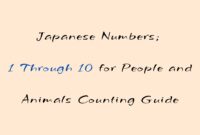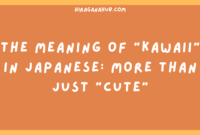Don’t sound awkward! The phrase ‘Have a Nice Day’ in Japanese has many
variations. Which one suits your situation best?
When learning Japanese, we often look for ways to say Japanese for Have a Nice
Day to convey our message correctly and naturally. However, did you know that
in Japanese, there is no direct translation for “Have a Nice Day”? Instead,
there are several phrases you can use depending on the situation. Let’s
explore how to say this phrase more naturally!

1. よい一日を (Yoi Ichinichi o) – Formal and Polite
If you want to say “Have a Nice Day” in a formal situation, use “よい一日を
(Yoi Ichinichi o).” This phrase sounds polite and is appropriate for business
conversations or speaking with someone you don’t know well.
Example:
A: 会議の後、どこか行きますか?(Kaigi no ato, doko ka ikimasu ka?) – Are you
going anywhere after the meeting?
B: いえ、まっすぐ帰ります。よい一日を!(Ie, massugu kaerimasu. Yoi ichinichi
o!) – No, I’m heading straight home. Have a nice day!
2. 良い日を過ごしてね (Yoi Hi o Sugoshite ne) – More Casual
For a more relaxed setting, you can use “良い日を過ごしてね (Yoi Hi o
Sugoshite ne),” which means “Hope you have a great day.” This is great for
friends and family.
Example:
A: 今日はデートですね?(Kyou wa deeto desu ne?) – You have a date today,
right?
B: はい! 良い日を過ごしてね!(Hai! Yoi hi o sugoshite ne!) – Yes! Hope you
have a great day, too!
3. いってらっしゃい (Itterasshai) – When Someone Is Leaving
If someone is heading out and you want to wish them a good day, use
“いってらっしゃい (Itterasshai).” This is commonly used among family members
when someone is leaving for work or school.
Example:
A: 行ってきます!(Ittekimasu!) – I’m leaving!
B: いってらっしゃい!(Itterasshai!) – Take care!
4. 楽しんでね (Tanoshinde ne) – When Someone Is Doing Something Fun
If someone is going somewhere fun, you can say “楽しんでね (Tanoshinde ne),”
which means “Have fun” or “Enjoy!” This sounds great in casual situations.
Example:
A: これから映画を見に行くよ!(Kore kara eiga o mi ni iku yo!) – I’m going to
watch a movie now!
B: いいね! 楽しんでね!(Ii ne! Tanoshinde ne!) – Nice! Have fun!
5. お元気で (Ogenki de) – When Parting for a Long Time
If you’re parting ways with someone for an extended period, “お元気で (Ogenki
de)” is a good choice. It means “Take care” and is often used in formal
contexts.
Example:
A: 日本に帰る前に会えてよかった!(Nihon ni kaeru mae ni aete yokatta!) – I’m
glad we met before you went back to Japan!
B: 私もです!お元気で!(Watashi mo desu! Ogenki de!) – Me too! Take care!
Now you know different ways to say Japanese to have a nice day, depending on
the situation! Choosing the correct phrase will make your conversations more
natural and less awkward. Start using them in your daily conversations!


